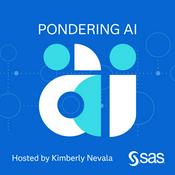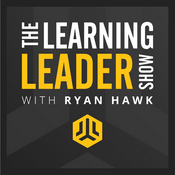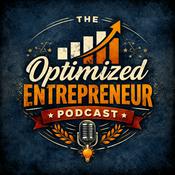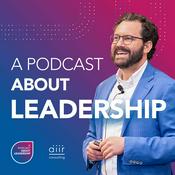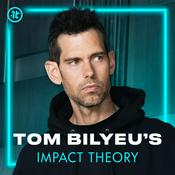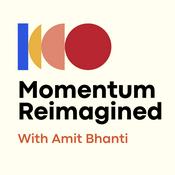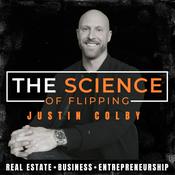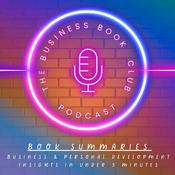90 episodes
- Taka Ariga hits all the right notes for AI at scale: clarity of purpose, strong foundations, sustainable innovation, engaged ownership, and a confident workforce.
Taka and Kimberly discuss going beyond novel AI prototypes; the limits of automation; context building; data sovereignty and integrity; the unstructured data deluge; the unique sensitivities and needs of public agencies; valuing ownership and viable ways to scale; plagiarizing for good; foundations for AI success; wanting innovation without change; rethinking governance; enabling confident AI use; making space for reinvention; and being a skeptical AI advocate.
Taka Ariga is a heretical technologist and the founder of Sol Imagination. He focuses on AI strategy design, implementation, and value capture. Taka served the US Office of Personnel Management (OPM) as CDO and CAIO and the US Government Accountability Office (GAO) as Chief Data Scientist and Director of the Innovation Lab.
Related Resources:
Sol Imagination (company) https://sol-imagination.ai/
A transcript of this episode is here. - Theodora Lau banks on AI becoming our financial GPS and OS but flags required waypoints to protect consumer data rights, maintain trust and close the digital divide.
Theo and Kimberly discuss the progression toward a financial GPS powered by AI; consumer data rights and trust; the billion dollar question for 2026; analog identify verification; reducing risk and improving the customer experience; valuing people above transactions; the widening digital divide; upskilling and reskilling; cultivating curiosity and reclaiming time; financial security as the foundation for health; agentic commerce and AI as the financial OS; and always being human.
Theodora Lau is the Founder of Unconventional Ventures. A prolific speaker, author and advisor, Theo is an American Banker’s Top 20 Influential Women in FinTech. Recognizing that health and financial security are innately entwined, Theo works to spark innovation in the public and private sectors to meet the needs of underrepresented consumers.
Related Resources:
Banking on (Artificial) Intelligence (book)
One Vision Podcast (RSS feed)
Unconventional Ventures (company)
A transcript of this episode is here. - Gretchen Stewart knows she doesn’t know it all, always asks why, challenges oversimplified AI stories, champions multi-disciplinary teams and doubles down on data.
Gretchen and Kimberly discuss conflating GenAI with AI, data as the underpinning for all things AI, workflow engineering, AI as a team sport, organizational and data siloes, programming as a valued skill, agentic AI and workforce reductions, the complexity inherent in an interconnected world, data volume vs. quality, backsliding on governance, not knowing it all and diversity as a force multiplier.
Gretchen Stewart is a Principal Engineer at Intel. She serves as the Chief Data Scientist for the public sector and is a member of the enterprise HPC and AI architecture team. A self-professed human to geek translator, Gretchen was recently nominated as a Top 100 Data and AI Leader by OnConferences.
A transcript of this episode is here. - Dr. Chris Marshall analyzes AI from all angles including market dynamics, geopolitical concerns, workforce impacts, and what staying the course with agentic AI requires.
Chris and Kimberly discuss his journey from theoretical physics to analytic philosophy, AI as an economic and geopolitical concern, the rise of sovereign AI, scale economies, market bubbles and expectation gaps, the AI value horizon, why agentic AI is harder than GenAI, calibrating risk and justifying trust, expertise and the workforce, not overlooking Rodney Dangerfield, foundational elements for success, betting on AIOps, and acting in teams.
Dr. Chris L Marshall is a Vice President at IDC Asia/Pacific with responsibility for industry insights, data, analytics and AI. A former partner and executive at companies such as IBM, KPMG, Oracle, FIS, and UBS, Chris’s mission is to translate innovative technologies into industry insights and business value for the digital economy.
Related Resources
Data and AI Impact Report: The Trust Imperative (IDC Research)
A transcript of this episode is here. - A retrospective sampling of ideas and questions our illustrious guests gifted us in 2025 alongside some glad and not so glad tidings (ok, predictions) for AI in 2026.
In this episode we revisit insights from our guests and, perhaps, introduce those you may have missed along the way. Select guests provide sparky takes on what may happen in 2026.
Host Note: I desperately wanted to use the work prognostication in reference to the latter segment. But although the word sounds cool it implies a level of mysticism entirely out of keeping with the informed opinions these guests have proffered. So, predictions it is.
A transcript of this episode is here.
More Business podcasts
Trending Business podcasts
About Pondering AI
How is the use of artificial intelligence (AI) shaping our human experience?
Kimberly Nevala ponders the reality of AI with a diverse group of innovators, advocates and data scientists. Ethics and uncertainty. Automation and art. Work, politics and culture. In real life and online. Contemplate AI’s impact, for better and worse.
All presentations represent the opinions of the presenter and do not represent the position or the opinion of SAS.
Podcast websiteListen to Pondering AI, The Learning Leader Show With Ryan Hawk and many other podcasts from around the world with the radio.net app

Get the free radio.net app
- Stations and podcasts to bookmark
- Stream via Wi-Fi or Bluetooth
- Supports Carplay & Android Auto
- Many other app features
Get the free radio.net app
- Stations and podcasts to bookmark
- Stream via Wi-Fi or Bluetooth
- Supports Carplay & Android Auto
- Many other app features


Pondering AI
Scan code,
download the app,
start listening.
download the app,
start listening.
